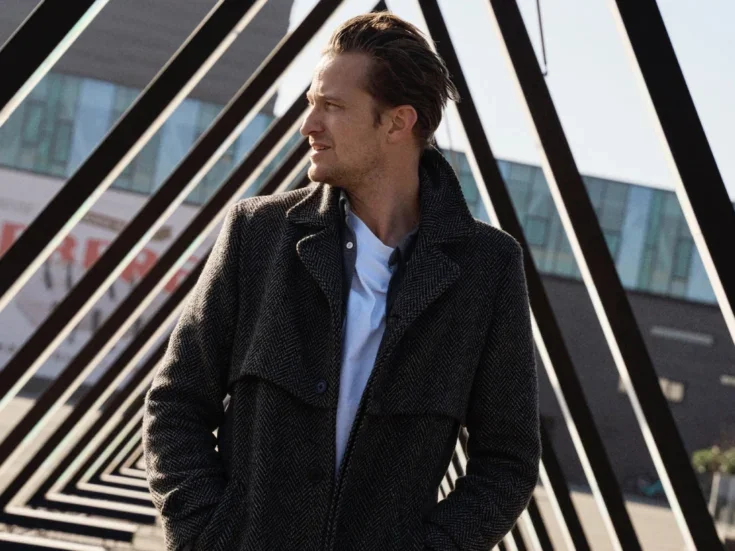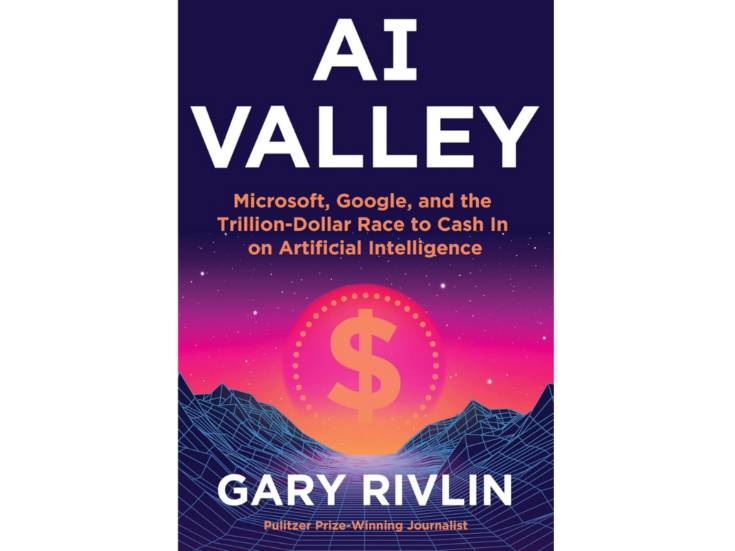
Entrepreneur Adrian Cheng is on a mission to breathe fresh life into China’s luxury shopping experience, combining the best of the East and West, writes John Arlidge.
‘It’s horrendous. Absolutely horrendous,’ says Adrian Cheng, as he walks through K11, his brand-new shopping mall and art hub in downtown Shanghai. He’s not talking about what he sees around him. He’s talking about what he sees in other malls. For all the chatter that China is the new frontier in upscale retail and the saviour of the troubled luxury goods market, Cheng believes that upscale retail in the world’s second largest economy is about as interesting as a wet Tuesday in Nanchang.
He’s not wrong. Step into any mall in almost any city in the mainland and you’ll find yourself in a giant, antiseptic shed of Western brands — all the same Western brands, all the time, with pretty much all the same stock. ‘China has been growing rapidly since 1979. People have built a lot of hardware, a lot of buildings. It’s only now that the software — the personal education of the audience — is catching up,’ Cheng explains. ‘It’s time to curate new content, to start something original, something more Chinese, too.’ Which is where he and K11 come in.
The 37-year-old entrepreneur takes me to an entire floor in the mall where there are stores with little-known but perhaps soon to be very well-known Chinese brands and a vast exhibition devoted to handbags, called Bagism, which features bags toted by the likes of Princess Diana and Jane Birkin, alongside wild concepts designed by the late Zaha Hadid. ‘Don’t think of this as a shopping mall but as a museum space,’ he says.
In the shops I can buy the latest offerings from Chinese designers. ‘The products here are by local designers and you can see them and then order them online from the sales staff, who all have iPads. We are the first online off-line multi-brand market for local designers,’ he says. He shows me his favourite pieces. ‘Look at this. It’s called “I Ate Your Sister”,’ he says, picking up jewellery featuring a girl with her sister’s food in her mouth, created by a designer called Li Mei. ‘It’s fun, right? People love it.’
Other — less cannibalistic — names to look out for include Song Yang, whose accessories brand is Ben by Song; Huajiastudio, created by a woman who goes by only her first name, Huajia; Ran Fan, a graduate of Central St Martin’s in London; and Vega Zaishi Wang, whose work can now also be found in Galeries Lafayette in Paris.
On the walls of the stores and the mall is art from young Chinese artists. They are the fruits of the K11 Art Foundation, the first non-profit and non-state owned art foundation in China, which Cheng has established to incubate emerging contemporary Chinese artists and curators, and to promote public art education. ‘We fund artists and create an artistic village for them to generate new pieces,’ he says.
In 2013, he spearheaded a collaboration with Central Saint Martins, setting up an annual full MA scholarship to help students from Hong Kong and the mainland study at the London college. Small wonder he made it on to the ArtReview 2014 and 2015 Power 100 lists as one of the contemporary art world’s most influential figures.
It’s not just art and commerce that motivate Cheng. He’s pioneering new food concepts, too. In K11 in Shanghai there’s a farm that grows herbs and the kind of food market that would shame most of those found in London. ‘We’re mixing luxury fashion with art, with contemporary Chinese design and even food to create a new ecosystem of retail,’ he says. He’s rolling out his latest vision in Shanghai, rather than his home town of Hong Kong, because ‘Shanghai is more interesting in the art scene and mainland China is leading in fashion’. What is even more remarkable about K11 is that it is designed not for old Chinese, but for the so-called millennials.
These are the youth that all retailers crave but Chinese retailers want to attract more than most, because they are the ones with the money. ‘We only care about millennials. Did you know that 70 per cent of the Chinese population in the next seven years will be millennials? Some 70 per cent of our VIP clients are millennials. They are different from their parents; they were born just after the opening up of China. They’re the future.’
He should know. He’s one of them. Dressed in a blue blazer with a patterned silk handkerchief bursting from the breast pocket, he looks every inch the scion of the Hong Kong-based Cheng family, who are No 58 on the Forbes global rich list with family wealth in 2016 of $14.5 billion.
The family’s interests include, in no particular order: New World Development, a property outfit that is building $2-3 billion-worth of new malls with a total of 1.4 million square metres of retail space in mainland China, including K11 in Shanghai, and has also bought the Rosewood Hotel group, which means it now owns or manages Le Crillon in Paris, the Beverly Wilshire in Los Angeles and the Carlyle in New York; the Chow Tai Fook Jewellery Group, Asia’s largest with revenues of $9.98 billion in 2014 from 2,200 stores and online sales; Chow Tai Fook Enterprises, the China distributor for Ferrari and Maserati; and Luxba Group (the name means Luxury by Adrian), the fashion management arm under New World Group, which manages Moschino, Love Moschino, Red Valentino and also Dsquared2. Cheng, a Harvard graduate, is also on the board of Roberto Cavalli, the Italian label in which Chow Tai Fook Enterprises bought a 90 per cent stake in conjunction with the Italian private equity fund Clessidra.
Cheng’s vision is not wholly Chinese, of course. All those big Western brands in those big, bland retail boxes are there for a reason. There’s still a huge market for Western goods in China. ‘Chloe is growing at 40 per cent a year here in K11,’ he says. ‘We have 250 very, very high-spending VIPs who go to Dolce & Gabbana, Max Mara and the like. Our sales are growing at double digits.’ That’s no mean feat in a sector that’s wobbly, thanks to currency woes, the economic slowdown and the Chinese government’s crackdown on corruption, notably ‘gifting’ expensive baubles to government and business leaders.
His refreshing mix of the best of East and West seems to be working. ‘We’re at the beginning of a new era when Chinese enjoy Western things, yes, but are also beginning to create their own contemporary art, culture, fashion. When you have money and wealth, you want to feel a certain pride of your own contemporary culture It’s a natural spontaneous explosion. It has only just started, but it’s working.
It’s a turning point. The old is being replaced by the new. It’s a new leaf coming up — that’s what China is and that’s what we want to be part of.’







